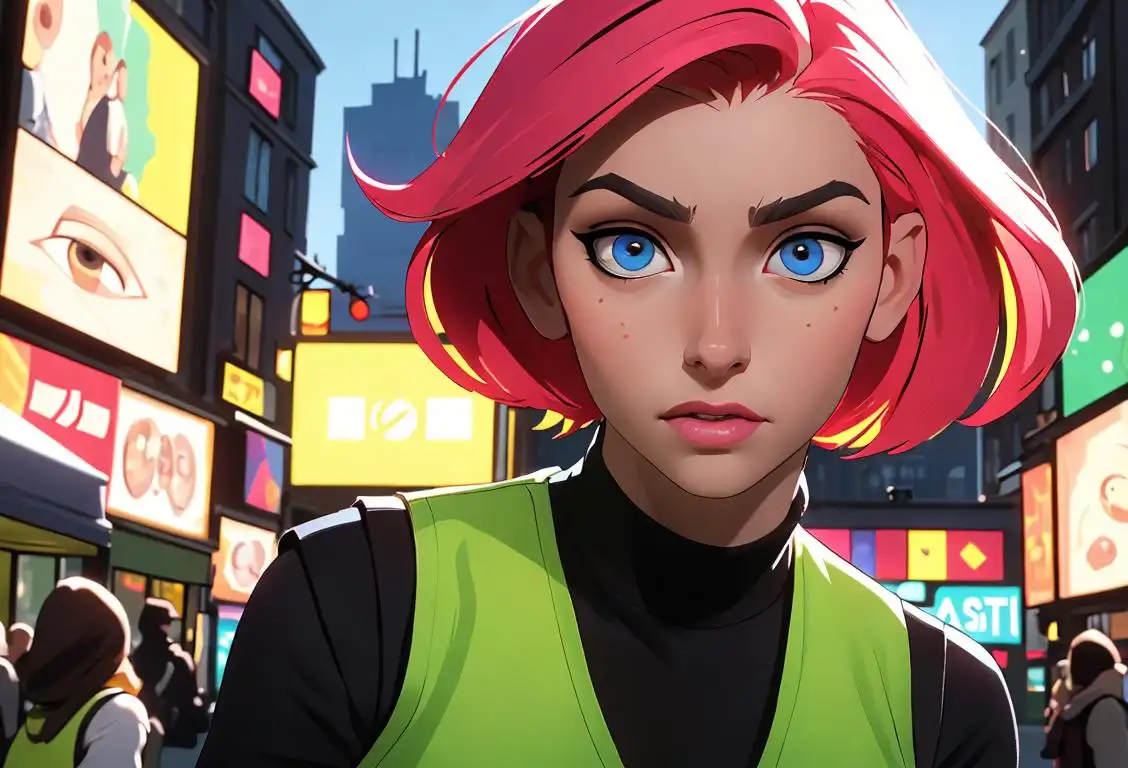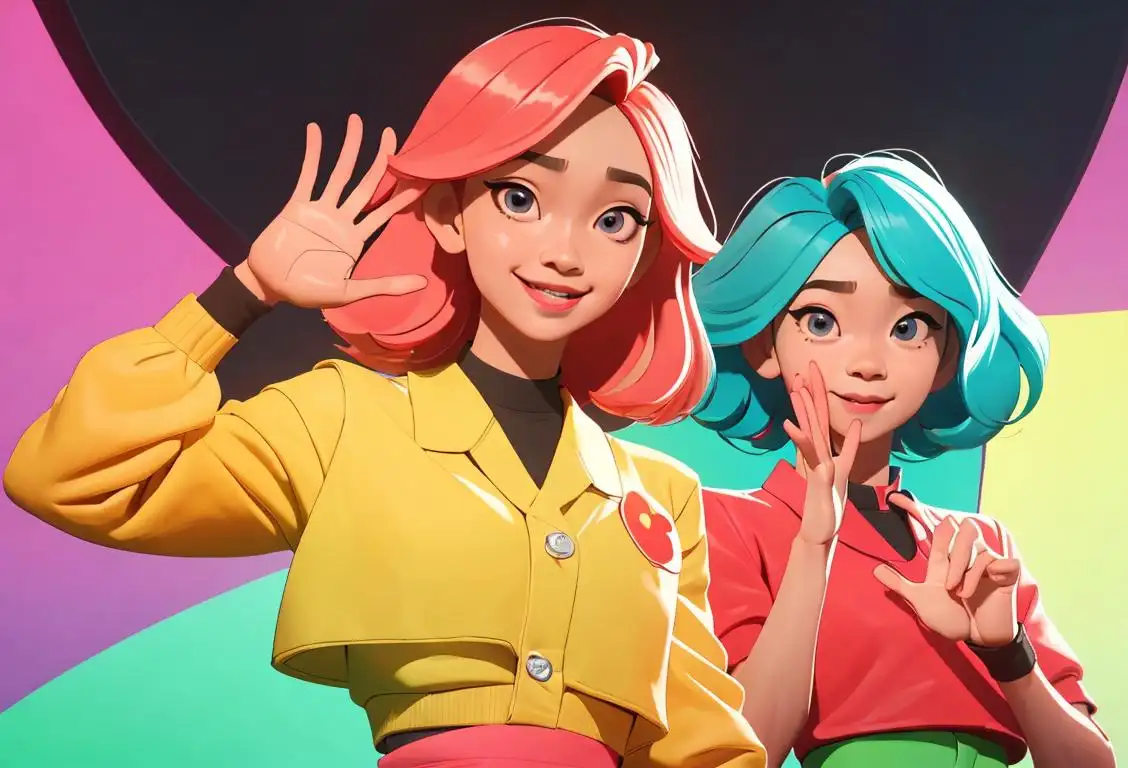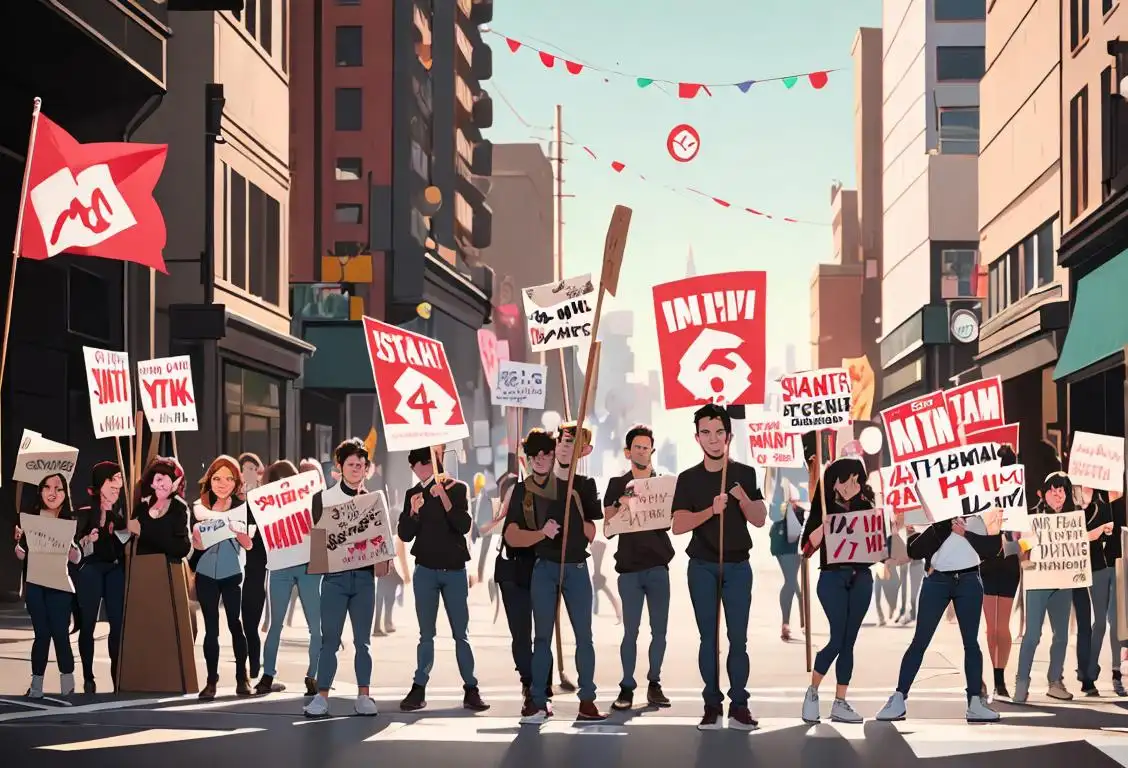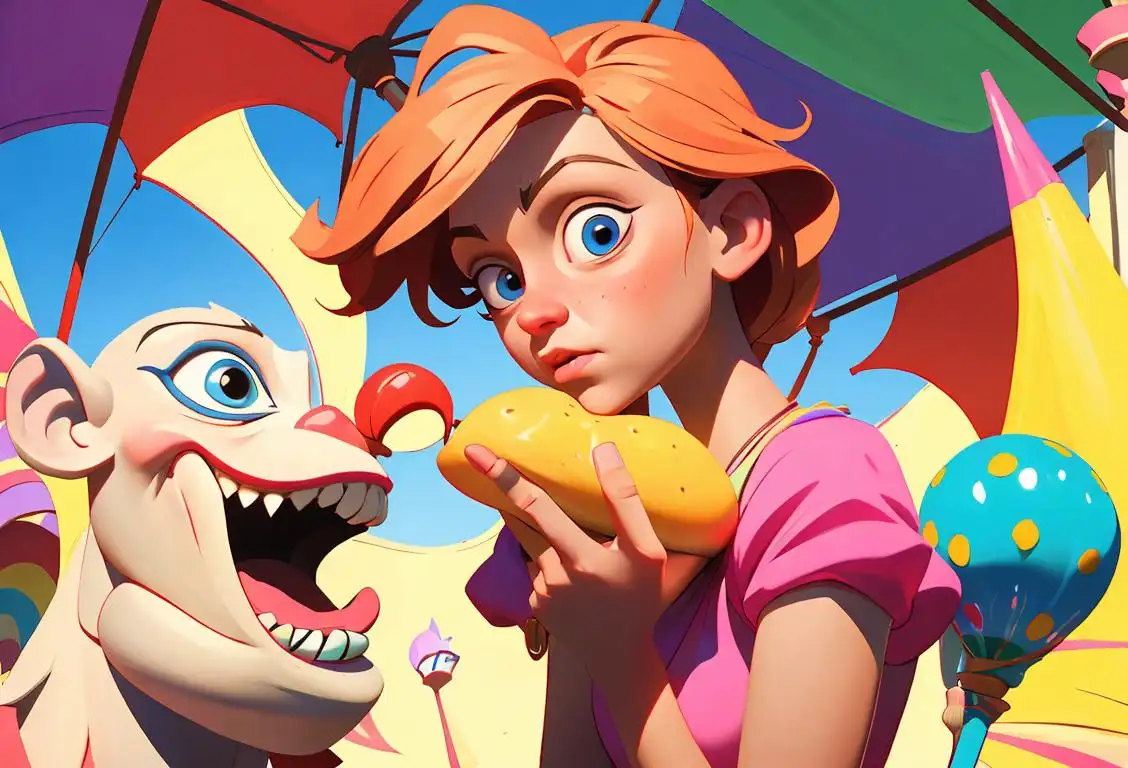National Pepe Day
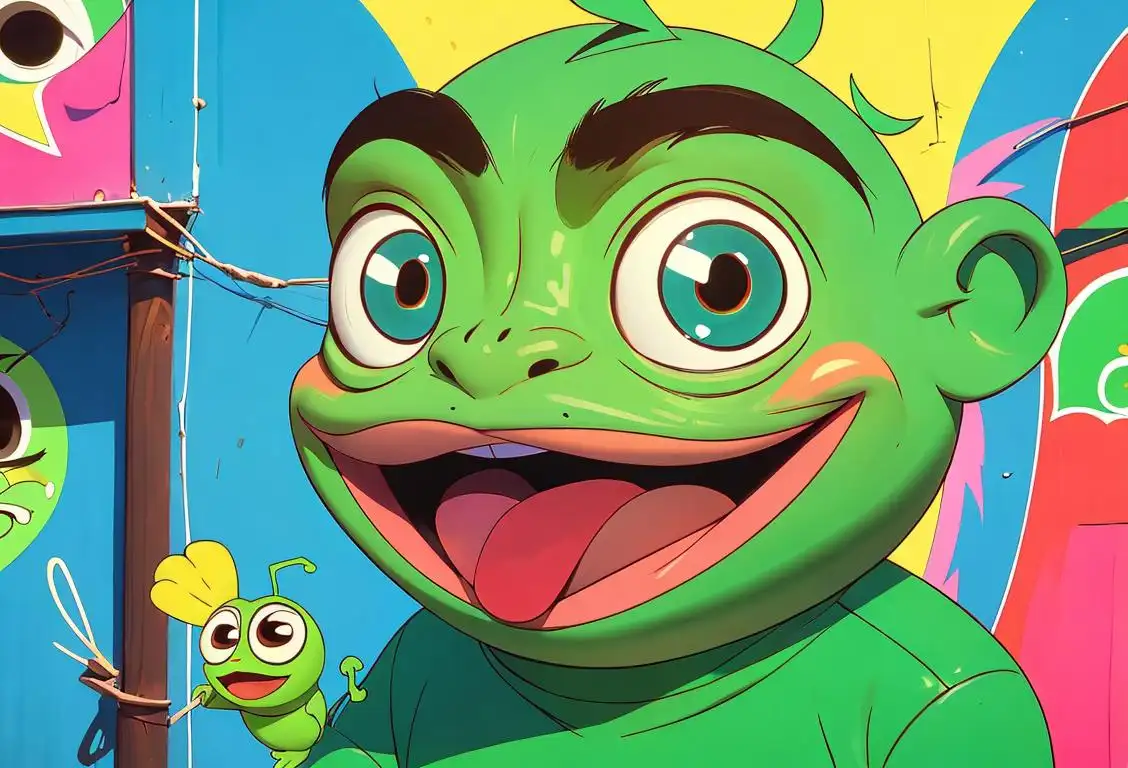
Welcome, my friends, to the wild and wacky world of National Pepe Day! This fascinating day of celebration has captured the internet's attention and has quite a history to explore. So grab your keyboard and buckle up for a journey through the meme-filled wonderland of Pepe!
When is Pepe Day?
It's national pepe day on the 14th April.
The Origins of Pepe
Pepe the Frog, that lovable green amphibian, first hopped onto the internet scene back in 2005. Created by artist Matt Furie, Pepe started as a harmless character in a comic called Boy's Club. Little did anyone know that this laid-back little frog would soon become a global internet sensation.
Internet Stardom
Pepe's popularity skyrocketed when he found his way into various online communities. Memes featuring our green friend started popping up everywhere, from message boards to social media. Pepe's expressive face and versatile nature allowed people to use him as a blank canvas for their own humor and creativity.
The Cult of Pepe
Pepe's rise to fame wasn't without controversy. In 2016, the character was mistakenly associated with alt-right extremism, causing some platforms to ban Pepe-related content. However, the vast majority of Pepe enthusiasts continued to embrace the frog purely for its comedic value and harmless nature.
A Day to Celebrate Pepe
On April 14, 2016, the internet exploded with excitement as National Pepe Day was established. This designated day is all about celebrating the impact Pepe has had on internet culture. From sharing favorite Pepe memes to creating new ones, it's a chance for internet dwellers to come together and revel in the joy that Pepe has brought to their lives.
How to Celebrate
Celebrating National Pepe Day is as easy as a few clicks, taps, and keystrokes. Join the hundreds of meme enthusiasts around the world and create your own Pepe-themed content. Whether it's a hilarious meme, a piece of fan art, or even a funny video, let your creativity run wild! And don't forget to share your creations with the world using the hashtag #NationalPepeDay.
History behind the term 'Pepe'
2005
Creation of Pepe in Boy's Club
In 2005, the popular Internet cartoonist Matt Furie created the character of Pepe the Frog as part of his comic strip 'Boy's Club.' Pepe was depicted as a laid-back, carefree frog who enjoyed smoking weed and hanging out with his friends. The character quickly gained a cult following on internet message boards and image-sharing websites.
2005
Birth of Pepe the Frog
In 2005, artist Matt Furie created a comic strip called 'Boys Club' which featured a character named Pepe the Frog. Pepe was depicted as a laid-back and chill frog, often seen with his catchphrase 'Feels good, man.' This comic strip was initially popular among the online community as a representation of a carefree and easygoing attitude.
2005
Origins in comic strip
In 2005, the cartoonist Matt Furie created a comic strip character named Pepe the Frog. Pepe was initially a lighthearted and laid-back character who gained popularity for his catchphrase 'feels good, man.' The character gained a small following and was primarily seen on the online forum site 4chan.
2005
Creation of the Pepe the Frog comic
In 2005, artist Matt Furie created the character 'Pepe the Frog' as part of his comic series called 'Boy's Club.' Pepe was depicted as a laid-back and chill frog, often seen hanging out with his friends. The character gained popularity among internet users for his relatable and carefree attitude.
2005
Birth of an innocent frog
In 2005, a comic artist named Matt Furie created a webcomic series called 'Boy's Club.' One of the characters in the series was a laid-back and innocent-looking anthropomorphic frog called Pepe. Pepe quickly gained popularity among internet users, often used to express various emotions.
2008
Pepe goes viral
By 2008, Pepe the Frog became a frequently used meme on the internet. Users started creating and sharing modified versions of the original Pepe artwork, using him to convey a wide range of emotions and reactions. Pepe's popularity continued to grow exponentially, spreading across different online communities.
2008
Pepe goes viral on 4chan
In 2008, Pepe the Frog began to make a significant impact on the internet culture. He started appearing in various internet memes on the imageboard website 4chan. These memes usually featured Pepe in different humorous or absurd scenarios, often accompanied by captions expressing different emotions or ideas. Pepe quickly became a beloved meme character within the 4chan community.
2008
Meme culture adoption
By 2008, Pepe the Frog had started to be widely adopted as a meme by users of various online platforms. The character was often depicted in different humorous and relatable scenarios, reflecting a range of emotions. This led to the creation of numerous Pepe meme variations and a rapidly growing fan base.
2008
Pepe becomes an Internet Meme
By 2008, Pepe the Frog had gained significant attention on the internet. Users on the imageboard website 4chan started using various versions of Pepe in their memes. These memes featuring Pepe were humorous and relatable, often depicting different emotions and scenarios. Pepe's expressive face made it a versatile character for users to convey their feelings.
2008
Pepe meme spreads on 4chan
By 2008, Pepe the Frog had become a popular reaction image on the infamous online imageboard 4chan. Users would post variations of Pepe to convey different emotions and reactions in threads. The simplicity of Pepe's design made it easy for users to modify and memify the character, leading to its widespread usage across the internet.
2014
Mainstream recognition
In 2014, Pepe the Frog gained mainstream recognition when it was featured in various internet memes and viral campaigns. The character's popularity surged, and he was used in diverse contexts, often modified and combined with other memes. Despite the innocent origins of Pepe, his image began to be associated with more controversial and offensive content as he became more popular.
2014
Pepe goes mainstream
In 2014, Pepe the Frog started appearing in various internet memes across different social media platforms like Facebook, Twitter, and Instagram. The character's relatable and versatile nature made it a popular choice for memers to express everything from joy and sadness to anger and frustration. As more people began using Pepe, it solidified its position as one of the internet's most recognizable memes.
2014
Pepe's Memetic Evolution
In 2014, Pepe's popularity skyrocketed as he became associated with the controversial and edgy culture of the online community. Internet users began creating an abundance of unique versions of Pepe, each representing different emotions, subcultures, and political ideologies. Pepe transformed into a symbol that reflected the diversity and sometimes extreme viewpoints found on the internet.
2015
Pepe's unfortunate association
In 2015, Pepe the Frog took an unexpected turn when it got associated with the controversial alt-right movement. Some prominent alt-right figures began using Pepe as a symbol, often with racist or offensive captions, which led to Pepe being designated as a hate symbol by the Anti-Defamation League.
2014
Pepe becomes a widespread internet meme
By 2014, Pepe the Frog had transcended the boundaries of 4chan and gained popularity across various online communities and social media platforms. Internet users began remixing, modifying, and sharing Pepe memes, leading to countless variations and derivative works. Pepe became a symbol of internet culture and a versatile meme template adaptable to different contexts and emotions.
2016
Pepe's association with alt-right movement
Unfortunately, in 2016, Pepe the Frog became associated with the alt-right movement during the United States presidential election. Certain political figures and groups started using Pepe as a symbol of white nationalism and hate, which tarnished the character's innocent origins. The Anti-Defamation League even recognized Pepe as a hate symbol, although Furie himself has vehemently opposed this association.
2016
Pepe's association with alt-right and controversy
In 2016, due to its widespread use, the Pepe meme faced a controversial turn. Some internet users associated Pepe with various political ideologies, including the alt-right movement. This association led to a public perception of Pepe as a symbol of hate or extremism, although his creator, Matt Furie, never intended it that way. The controversy sparked a debate about the internet meme's potential for political appropriation.
2016
Negative political connotations
During the 2016 United States presidential election, Pepe the Frog became entangled in controversy. The character was co-opted as a symbol by the alt-right movement and associated with white nationalism and hate speech. The Anti-Defamation League officially classified Pepe the Frog as a hate symbol due to its misuse and association with extremist groups.
2016
The legend of Pepe lives on
Despite its unfortunate association with the alt-right, Pepe continued to have a significant impact on internet culture. Many people, unrelated to the alt-right movement, embraced Pepe as a symbol of irony, humor, and non-conformity. Internet users shared Pepe memes across various platforms, reclaiming it from its negative connotations.
2016
Pepe's Political Controversy
In 2016, Pepe the Frog took an unexpected turn when it became associated with various political movements, including the alt-right in the United States. Pepe's image was appropriated and used by far-right groups, which created controversy and led to the Anti-Defamation League classifying Pepe as a hate symbol. This shift in perception caused a significant backlash and fueled debates regarding the ownership and usage of Pepe's image.
2020
Reclamation through positive usage
In recent years, efforts have been made to reclaim Pepe the Frog from its negative connotations. Artists and internet communities have been actively using Pepe in a positive and inclusive manner, emphasizing the original lighthearted and non-political nature of the character. These efforts aim to restore Pepe to his initial role as a fun and relatable meme, detached from extremist ideologies.
2020
Pepe's reclamation by the internet community
The internet community rallied to reclaim Pepe in 2020. Memers and internet users actively shared positive Pepe memes to counter the negative connotations attached to the character. Its reclamation symbolized a pushback against the hijacking of internet culture by hate groups. Pepe remains a complex and polarizing symbol, representing both the wholesome origins of internet memes and the dark side of meme culture.
2019
Pepe's creator reclaims the character
In 2019, Matt Furie took a stand against Pepe's political associations and actively began reclaiming his creation. Furie collaborated with the Anti-Defamation League (ADL) on the 'Pepe the Frog's Official Hate Symbols Database' initiative, aimed at cataloging the various permutations of Pepe's image and separating the original character from its controversial usage. Furie's efforts reflected his desire to restore Pepe's original lighthearted and friendly purpose.
2020
Reclamation of Pepe's Image
Despite the negative associations, Pepe the Frog continues to have a significant impact on internet culture. In recent years, there have been efforts by various communities to reclaim Pepe's image and separate it from its political implications. Artists and internet users have created positive and wholesome depictions of Pepe, aiming to restore its original meaning as a symbol of fun, positivity, and internet camaraderie.
Did you know?
Did you know that Pepe's catchphrase, 'Feels good man,' has become a popular internet saying synonymous with a sense of satisfaction or contentment? So the next time you're feeling good, be sure to throw a 'Feels good man' into the conversation and make people wonder, 'What in the world is that person talking about?'Tagged
fun internet cultureFirst identified
14th April 2016Most mentioned on
14th April 2016Total mentions
9Other days
Unfollowing Day
Work Naked Day
Outrage Column Per Day
Pabebe Wave Pabuko Day
Vest Contact Lenses Day
Pabebe Wave Tweets Vs All Artist Of Abs Pabebe Wave Day
Subtweet Day
I Think Tf Not Day
Strike Day
False Equivalency Day



